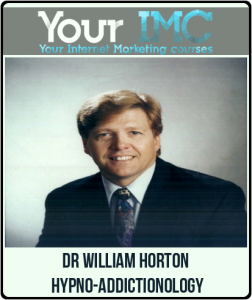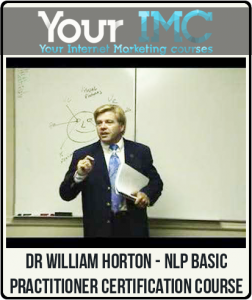Legal and Ethical Issues in Behavioral Health in Kansas by Richard D. Dvorak
Original price was: $219.99.$59.00Current price is: $59.00.
- Description
Description
Legal & Ethical Issues in Behavioral Health in Kansas by Richard D. Dvorak
**More information:
Get Legal & Ethical Issues in Behavioral Health in Kansas by Richard D. Dvorak at bestoftrader.com
Description
- The Do’s and Don’ts of Documentation
- Recognize and Avoid Legal Risk
- Up-to-date Legal and Ethical Laws for Kansas
- Why and When to Call an Attorney
- What is a Risk Analysis?
Without the proper legal awareness needed to stay in compliance, you may face grave legal and financial consequences. This seminar will show you how to continue to help the people you’ve been trained to help while still protecting yourself from many legal pitfalls. If you attend only one seminar this year, make it this one. Join attorney Richard D. Dvorak for an entertaining and enlightening day and leave with a greater understanding of the latest Kansas laws as they relate to mental health. You will take home practical strategies to minimize and manage legal and ethical risks and you will learn how to immediately implement these risk reducing strategies into your practice.
OUTLINE
Clinical Information Requirements
- Overview of HIPAA’s Requirements
- Documentation Requirements
- Retention Requirements
Confidentiality of Mental Health, HIV & Substance Abuse Records
- What is Confidentiality?
- Confidentiality versus Privacy
- Mental Health Information
- Substance Abuse Information under 42 C.F.R. Part II
- When & To Whom Records Can Be Released
- Alcohol/Drug and AIDS/HIV Treatment Records
- Protected Health Information under HIPAA
- HIPAA versus Other Laws—Which Takes Priority?
Implementing Security and Privacy Under HIPAA and Other Confidentiality Laws
- Key Changes under the HITECH Act
- Criminal and Civil Liability for Violations
- Risk Analysis with Case Study
- Implementing Reasonable and Appropriate Security Measures
- Writing and Adopting Required Policies
Rights
- State and Federal Laws
- Informed Consent
- Minors
- Refuse/Consent to Medication/Treatment
- Alcohol/Drug Abuse
- Access to Records
- Parental Rights
- Rights to Records
- Custodial versus Non-Custodial Parents
- Child Abuse Allegations
- Competency Issues
HIPAA Rights
- Access to Patient Records
- Accounting Records
- Requesting Corrections
- Requesting Restrictions
- Alternate Communications
Professional Ethics and Legal Liabilities
- Disciplinary Proceedings
- Expert Testimony
- Duty to Warn Issues
- Professional Obligations and Standards
Mental Health Professionals & the Legal System
- How to Respond to a Breach
- In Deposition or the Court Room: Responding to Questions
- Testimonial Privileges
- Divorce
- Criminal/Civil
OBJECTIVES
- Understand the process of implementing reasonable and appropriate security measures and knowledge of how to access policy and procedure templates.
- Develop policies on ethical issues such as restraints, seclusion and individual rights.
- Recognize security breach analysis and notification strategies.
- Describe the major requirements in responding to a deposition or responding to questions asked in a court of law.
- List the updated HIPAA and HITECH Act laws and how they pertain directly to Behavioral Health in Kansas.
- Compare and contrast the differences between HIPAA and other laws and know which takes priority.
- Identify at least three issues for which mental health professionals may be held legally liable if not compliant with existing regulations or laws.
- Equip healthcare organizations with the knowledge and practical applications to achieve “audit readiness”.
More information about Medical:
Medicine is the science and practice of establishing the diagnosis, prognosis, treatment, and prevention of disease.
Medicine encompasses a variety of health care practices evolved to maintain and restore health by the prevention and treatment of illness.
Contemporary medicine applies biomedical sciences, biomedical research, genetics, and medical technology to diagnose, treat, and prevent injury and disease,
typically through pharmaceuticals or surgery, but also through therapies as diverse as psychotherapy, external splints and traction, medical devices, biologics, and ionizing radiation, amongst others.
Medicine has been around for thousands of years, during most of which it was an art (an area of skill and knowledge) frequently having connections to the religious and
philosophical beliefs of local culture. For example, a medicine man would apply herbs and say prayers for healing, or an ancient philosopher and physician would apply bloodletting according to the theories of humorism.
In recent centuries, since the advent of modern science, most medicine has become a combination of art and science (both basic and applied, under the umbrella of medical science).
While stitching technique for sutures is an art learned through practice, the knowledge of what happens at the cellular and molecular level in the tissues being stitched arises through science.















